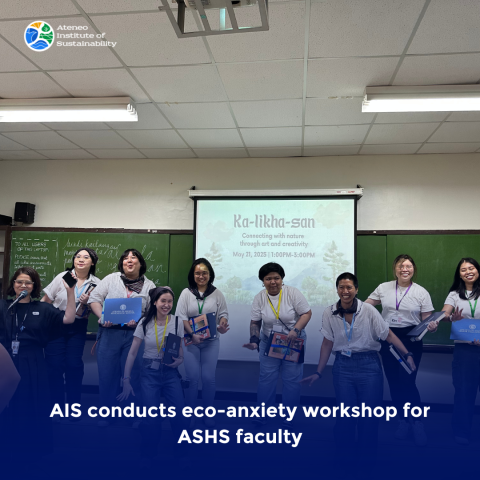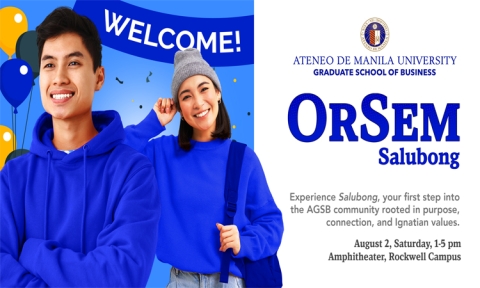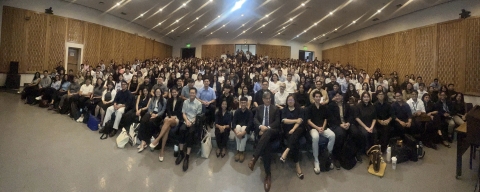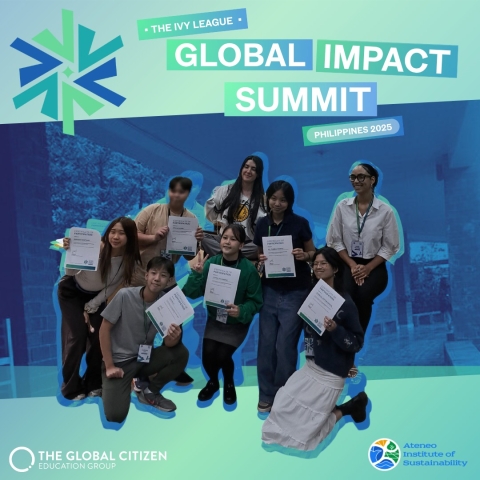Virtual support agent for the education sector powered by a large language model: BS ITE students' paper presented at the HCII 2025
05 Jul 2025
Samantha Mae See, Stephanie Rayco, and Wolverix Skyler Yu, graduating students from the BS Information Technology Entrepreneurship (BS ITE), co-authored and co-presented a paper with their program director and faculty mentor, Joseph Benjamin R. Ilagan of the Department of Quantitative Methods and Information Technology (QMIT), who also serves as the lab director of Ateneo Business Insights Laboratory for Development (BUILD). The paper was co-presented at the 27th International Conference on Human-Computer Interaction (HCII) 2025, held in Gothenburg, Sweden, with virtual and onsite participation, from 22 to 27 June. The research was jointly presented, with the student team delivering virtually and Program Director Joseph Benjamin R Ilagan presenting onsite. Ilagan also guided the research and preparation.
The paper, titled “A virtual support agent for university students powered by a large language model: conversational user experience design considerations,” explores how generative artificial intelligence can be applied to modernize university support systems. The research arose from the authors’ own experiences as students navigating administrative processes, sparking their interest in building more accessible and efficient support tools. In collaboration with the John Gokongwei School of Management (JGSOM), the research presents a prototype virtual agent designed to assist university students in navigating outbound exchange program requirements through natural, AI-driven conversations. The project was significantly enriched by the guidance and support of Matthew Laurence Uy, Coordinator for Student Mobility at JGSOM, whose insights and encouragement played a key role in shaping the project. Beyond improving student access to information, the system aims to significantly reduce the workload of administrative staff by automating repetitive inquiries and streamlining resource access.
This initiative also reflects Ateneo’s commitment to its sustainable development goals, using technology to strengthen quality education and improve how the university serves its community. Rooted in their own experiences as students, the team’s work highlights how thoughtful innovation can make university processes more inclusive and supportive. This advances Ateneo’s mission to create practical impact that benefits others.
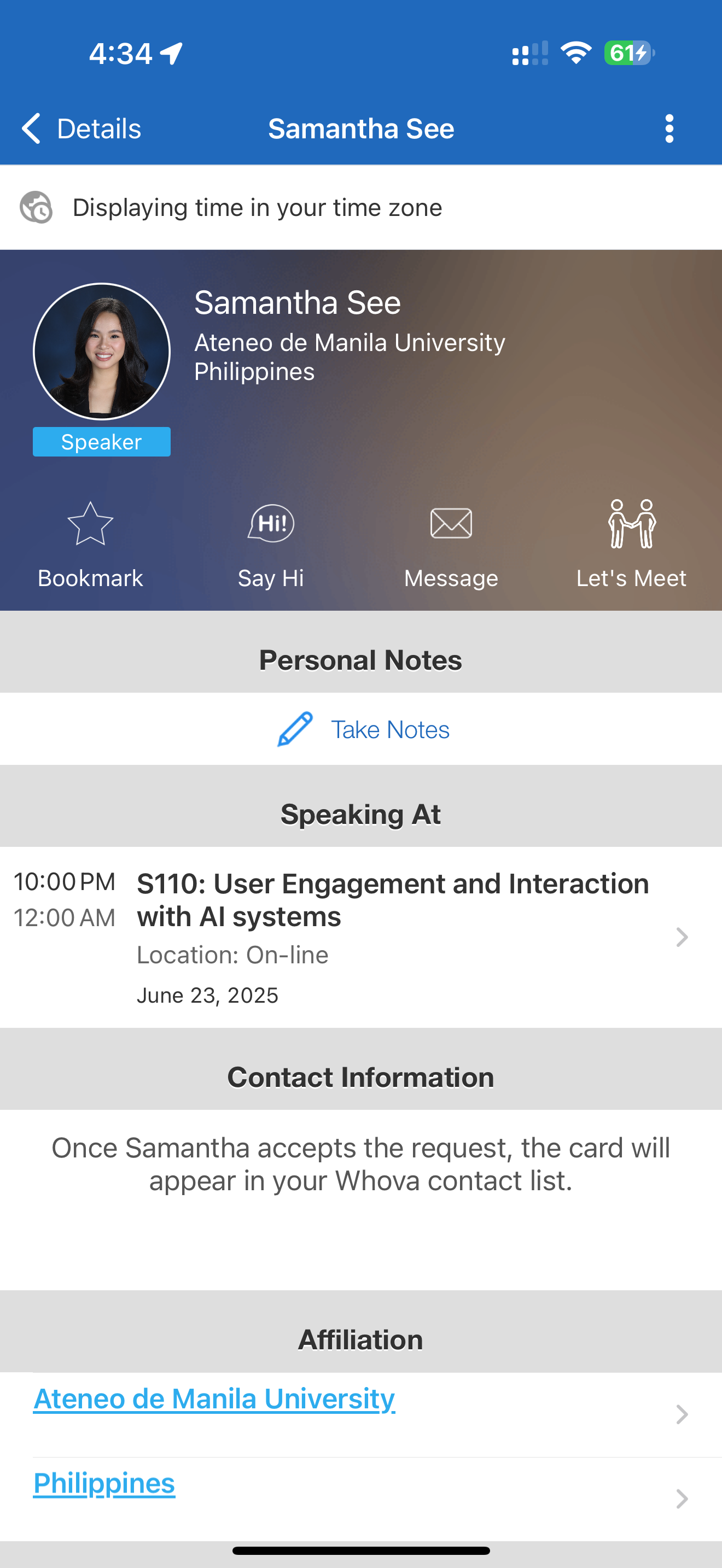
The HCII 2025 conference focused on emerging topics in human-computer interaction, including conversational AI, user experience design, and AI ethics. The event brought together researchers, practitioners, and industry experts to exchange knowledge on designing technology that enhances human-centered interactions. Accepted papers are published in the Springer Lecture Notes in Computer Science (LNCS) series, ensuring wide accessibility to the global research community. Proceedings are indexed in leading databases, including SCOPUS, INSPEC, and Web of Science.





